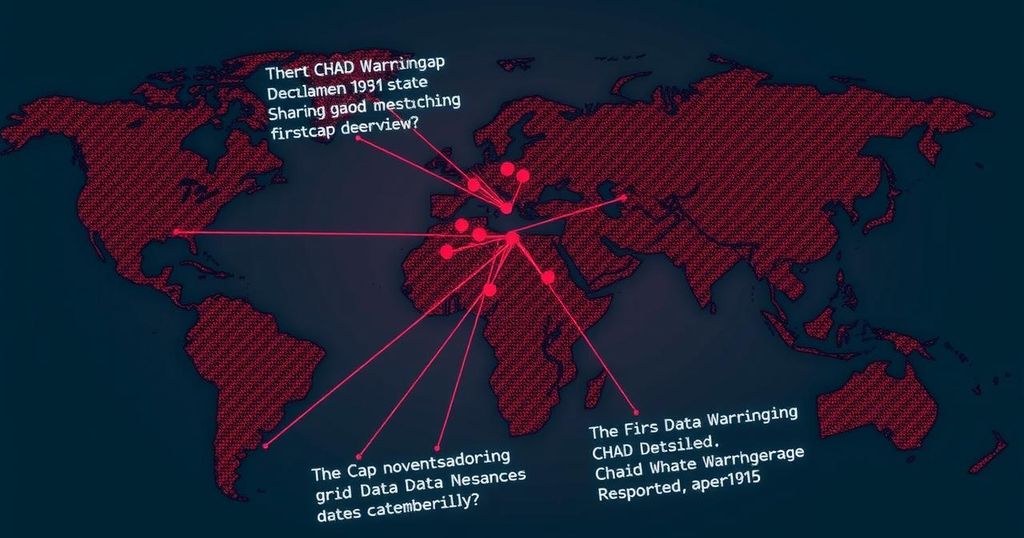Chad has become the first country to publish a CAP warning and begin international data sharing, marking a significant leap in climate resilience. This development involved upgrading its meteorological services through WMO assistance, which has enabled real-time data transmission from automated weather stations. The use of open-source tools has promoted interoperability and improved climate service delivery in the region, setting a model for other African nations.
Chad has achieved a remarkable milestone by publishing its first CAP (Common Alerting Protocol) warning and initiating international data sharing for climate resilience. This development signifies a crucial advancement in fortifying the country’s early warning systems. Through collaborations with the World Meteorological Organization (WMO), Chad’s meteorological agency, Agence Nationale de la Météorologie – Météo Tchad (ANAM), has modernized its services, strengthened communication channels, and improved real-time data sharing capabilities, thus transforming its capacity to respond to climate challenges.
Prior to these improvements, approximately 60% of National Meteorological and Hydrological Services (NMHSs) across Africa lacked functional websites and had significant impediments to effective data dissemination. More than one-third of these agencies had not issued any weather warnings in the preceding six months, compounding the difficulties of delivering timely information to vulnerable communities. In response, WMO worked closely with ANAM over the past year to enhance its climate services through a comprehensive technical assistance program.
The culmination of this collaborative effort occurred during a WMO-led mission in October 2024, which was part of a broader initiative funded by the Climate Risk and Early Warning Systems (CREWS) Initiative. This mission allowed Chad to establish international data-sharing protocols and publish its first CAP warnings, signifying a pivotal moment in its disaster risk management capabilities. The introduction of automated weather stations has enabled Chad to transmit real-time data, contributing significantly to global weather forecasting.
The transition towards utilizing open-source tools has been fundamental to this transformation. Key innovations such as ClimWeb for climate service management, CAP Composer for alert dissemination, and WIS2Box for data integration have enhanced Chad’s climate resilience efforts. These tools not only support Chad but provide a valuable roadmap for other African nations grappling with similar infrastructural challenges.
Chad’s accomplishments exemplify the impactful potential of digital transformation in strengthening climate services. By addressing the issues of software incompatibilities and data fragmentation, Chad sets a benchmark for other countries. Through this initiative, national meteorological agencies across Africa can aspire to bolster their early warning systems, thereby contributing to a safer and more sustainable environment.
The publication of Chad’s first CAP Warning symbolizes a significant evolution in the country’s disaster risk reduction and climate resilience strategies. National Meteorological and Hydrological Services (NMHSs) in Africa face substantial barriers, including a lack of digital infrastructure and communication tools, which hinder their ability to effectively disseminate critical weather information. Chad’s recent advancements serve as an example of how targeted international collaboration and the deployment of modern technologies can fortify these systems, ultimately leading to improved climate response capabilities.
Chad’s successful launch of the CAP warning and its participation in international data sharing marks a transformative phase for its meteorological services and sets a precedent for other African nations. The advancements achieved with WMO’s support have not only enhanced Chad’s climate resilience but also provided a framework for addressing systemic challenges facing NMHSs across the continent. By embracing digital tools and enhancing real-time data exchange, Chad is paving the way for a robust response to climate-related risks, ensuring better preparedness for vulnerable populations.
Original Source: www.preventionweb.net






